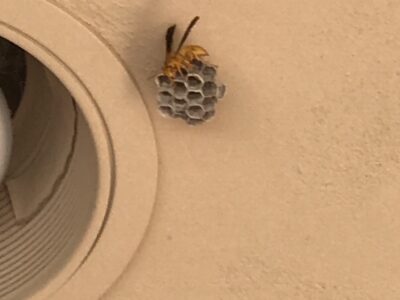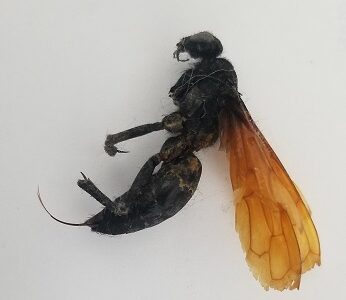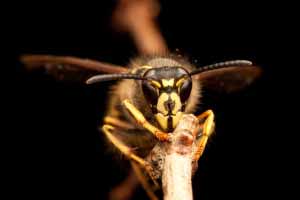Wasps
Did you know they are almost all female, the original wasp builds the first paper nests and starts laying eggs. The initial generations then start helping Mom, they tend to all the duties and Mom is available to just lay eggs. I will tell you that I think they are the most vicious in general of the stingers out there. They always seem to give you that look, if you get close. I’ve encountered Bald-faced Hornets (ground type) and even they weren’t as nasty. I also think the toughest wasps are those in bushes, you can’t see them and they attack without warning. A friend in Ireland had some issues with wasps, check it out?
Did you know?
- Only the females have stingers.
- Wasps can sting multiple times, not honeybees.
- They hunt and eat almost every kind of insect.
- No they don’t create honey, they feed their young meat.
- They eat a lot of insects that might damage agricultural plants, the food we might eat.
- No matter how many wasps are in a nest, only 1 is the Queen.
- Wasps are social insects like ants.
- Near the end of summer some eggs start forming into fertile Queens with some males, they then over winter and start again
- There are over 120, 000 species of wasp worldwide.
- They come in lots of colors.






